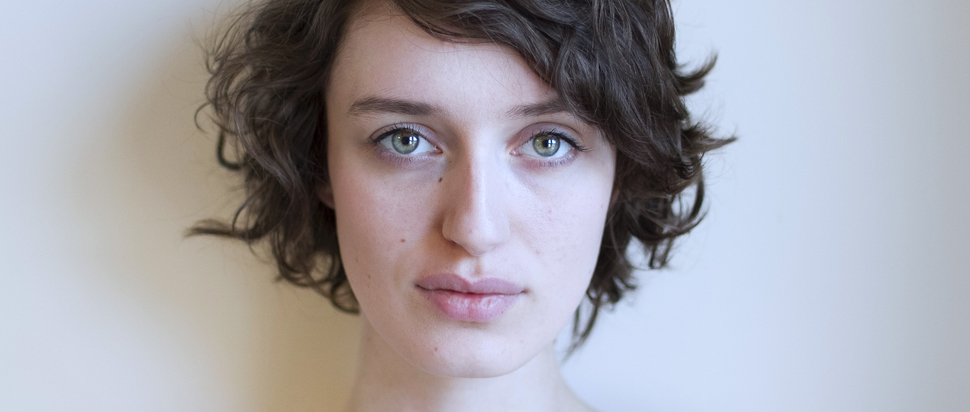Roseanne Watt: On Moder Dy
In 2018, Roseanne Watt won the prestigious Edwin Morgan Poetry Award celebrating the country’s best young poets. She talks to The Skinny about her beautiful prize-winning debut Moder Dy
What was your journey in terms of writing Moder Dy?
I have been calling my approach one of ‘slow cultivation’. Others would more accurately call it ‘undisciplined’. In all honesty, I couldn’t really tell you when Moder Dy’s journey started. I usually estimate that I started taking the idea of writing a poetry collection seriously around the age of twenty (that said, there is one poem in the collection which I wrote when I was seventeen). I’m now twenty-eight. So it’s been something of a long road, but one which I was never really in a rush to reach the end of.
What draws you to poetry as a form?
I think it’s something to do with the precision of it, or perhaps more the way it seems to poise on the brink of itself. I like the weight of lines amongst the threat of white space. Some of my favourite poems are ones where it looks like the page could swallow it whole. I suppose I feel drawn to the form because poetry is well equipped to manage that tension between both being and being obliterated, which is something I’ve felt keenly at certain points in my life.
What are the greatest influences on your work?
In terms of subjects I can’t seem to lay to rest; landscape, memory, and language are the big three. Which is cheating, because those are general enough to encompass everything. In terms of writers, Kevin MacNeil and Kathleen Jamie were my main mentors during my years in formal education, and taught me so much more than just the craft of poetry. Aside from them, Alice Oswald, Robert Alan Jamieson, and Tomas Tranströmer (translated by Robin Fulton) are poets whose collections I keep returning to time and time over.
At the start of the book, you talk about words just being words when you were younger, later learning they were ‘dialect words’ – how does that play into your work as a poet?
In the introduction, I write about having English and Shaetlan ‘bifurcate’ in my mind when I started to go to school. It was inevitable, but there’s a part of me that yearns to return to that state of being, where I fully believed there was no differences of identity or power-status between them. My dad still lives in that kind of mind frame. He often only realises he’s using a Shaetlan word when Microsoft Word underlines it in red. I don’t have that anymore, and I can’t get back to that point either.
Someone once described Moder Dy to me as a manifesto on language, which though meant well, the idea actually kind of appalled me. I don’t want to be a spokesperson for an entire archipelago’s language; I absolutely resist that kind of authority on the matter!
For me, writing Moder Dy was much more a process of becoming comfortable with my own linguistic inheritance, and the betweenness of it. The kind of nuances that poetry is best at investigating. Whilst it might seem like I’m arriving at some kind of a conclusion with the last poem in Moder Dy, really I’m still very much out at sea on this one.
There's a real sense of place throughout the collection – how does Shetland as a location influence you?
Shetland is a place that is fraught with tensions, caught somewhere between the very old and very new, between remembering and forgetting. There aren’t really any trees, which means you can quite clearly see those tensions playing out in the landscape; peat banks in the same periphery as the oil terminal’s flare stacks; ruined houses and abandoned villages in plain sight of new ones. When I’m home, I have this sense that the wilderness is only moments from moving in. It’s beautiful, and deeply frightening. I think that’s a good thing. It’s an unsettling kind of reverence.
You're part of the Book Festival's Throwing Voices project this year; could you tell us about the project and your experience with it so far?
Throwing Voices is a project that examines how local language, culture and tradition can resonate across linguistic divides. The project involves a Scottish writer and international writer selecting objects from their cultures, and writing about those objects in a way that generates a kind of dialogue between them. The texts are then taken by a musician, who creates a piece to accompany the performance.
I was fortunate enough to be paired with the Guyanese writer Imam Baksh, and Glasgow-based Kenyan musician Heir of the Cursed. It’s been an absolutely fascinating process. I think any project which fosters that kind of dialogue across perceived divides is an essential one, especially during times which feel as polarised as these. Imam is a wonderful and generous writer, and it was a lot of fun finding the resonances between our chosen objects. I’m really looking forward to sharing the final result in August.
Niall Campbell & Roseanne Watt: Rising Stars of Scottish Poetry, Charlotte Square Gardens (Writers' Retreat), 11 Aug, 6.30pm, sold out
Throwing Voices: Imam Baksh, Heir of the Cursed & Roseanne Watt, Charlotte Square Gardens (Spiegeltent), 15 Aug, 3.45pm, £12-15
